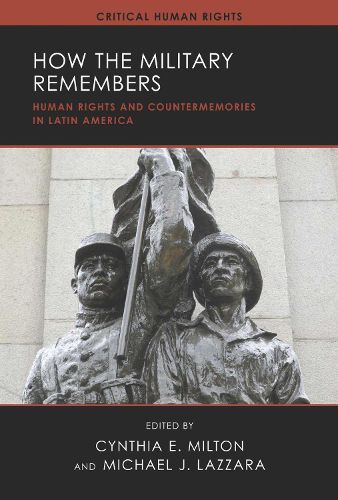Readings Newsletter
Become a Readings Member to make your shopping experience even easier.
Sign in or sign up for free!
You’re not far away from qualifying for FREE standard shipping within Australia
You’ve qualified for FREE standard shipping within Australia
The cart is loading…






This groundbreaking collection of essays by experts in political science, sociology, history, and literature analyzes the nuanced and often contentious interplay between memory, truth, and accountability in contemporary Latin America. While previous studies have examined democratization efforts (and right-wing backlashes), transitional justice, and victim-oriented narratives since the end of the Cold War, this volume takes a new approach. It convincingly demonstrates the importance of deconstructing the militaries' own active memory work-or rather countermemory work, a term the contributors employ to refer to military memories that are both counterintuitive and run counter to the "victim-oriented" memories that have historically informed Latin American public memory and human rights activism.
With an eye toward particular cultural, political, and historical contexts of the specific countries involved, the collection emphasizes the continuities that come into relief by taking a broader regional focus. The contributors identify the many subtle ways in which past military perpetrators appropriate mechanisms of accountability and truth-telling to reconfigure the past, muddy the distinctions between perpetrator and victim, and weaponize ways of remembering.
$9.00 standard shipping within Australia
FREE standard shipping within Australia for orders over $100.00
Express & International shipping calculated at checkout
This groundbreaking collection of essays by experts in political science, sociology, history, and literature analyzes the nuanced and often contentious interplay between memory, truth, and accountability in contemporary Latin America. While previous studies have examined democratization efforts (and right-wing backlashes), transitional justice, and victim-oriented narratives since the end of the Cold War, this volume takes a new approach. It convincingly demonstrates the importance of deconstructing the militaries' own active memory work-or rather countermemory work, a term the contributors employ to refer to military memories that are both counterintuitive and run counter to the "victim-oriented" memories that have historically informed Latin American public memory and human rights activism.
With an eye toward particular cultural, political, and historical contexts of the specific countries involved, the collection emphasizes the continuities that come into relief by taking a broader regional focus. The contributors identify the many subtle ways in which past military perpetrators appropriate mechanisms of accountability and truth-telling to reconfigure the past, muddy the distinctions between perpetrator and victim, and weaponize ways of remembering.